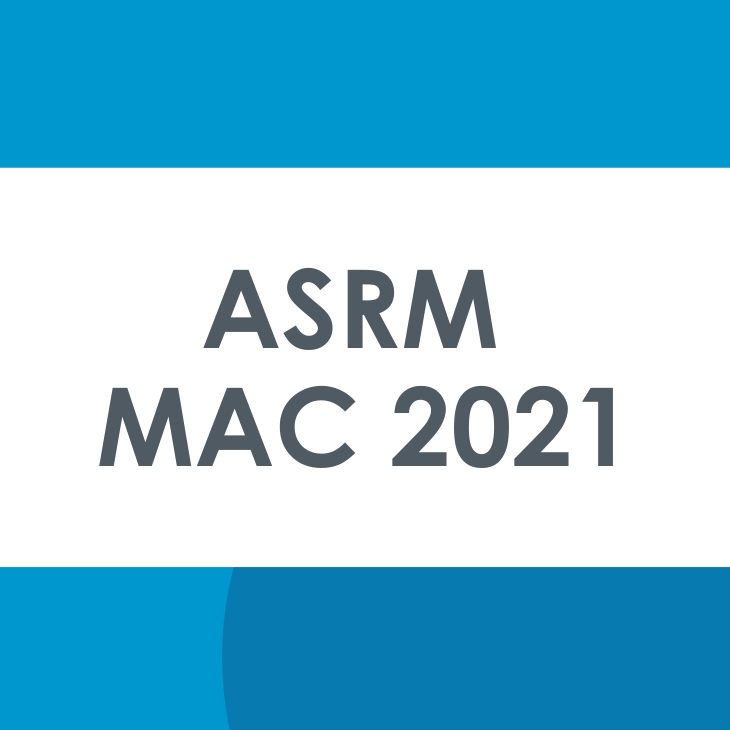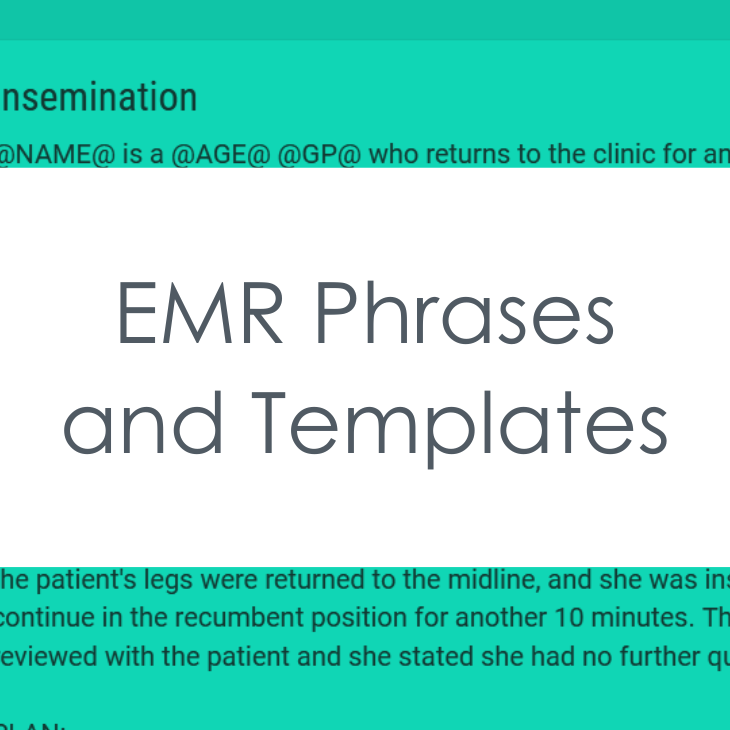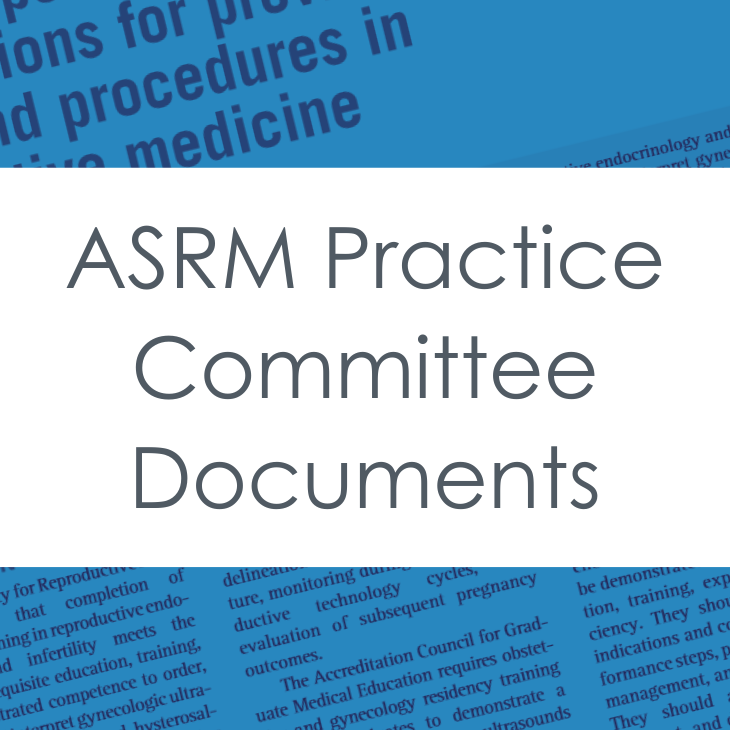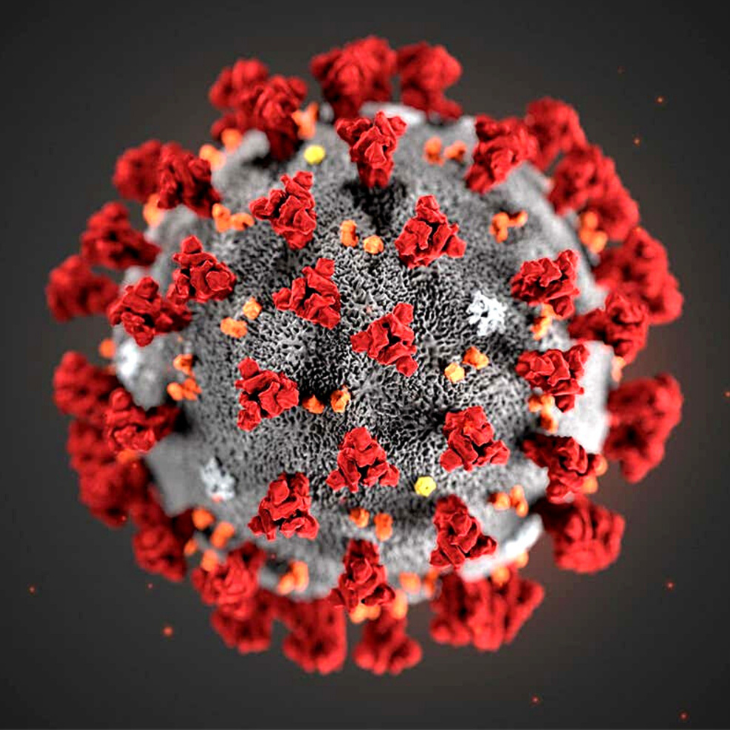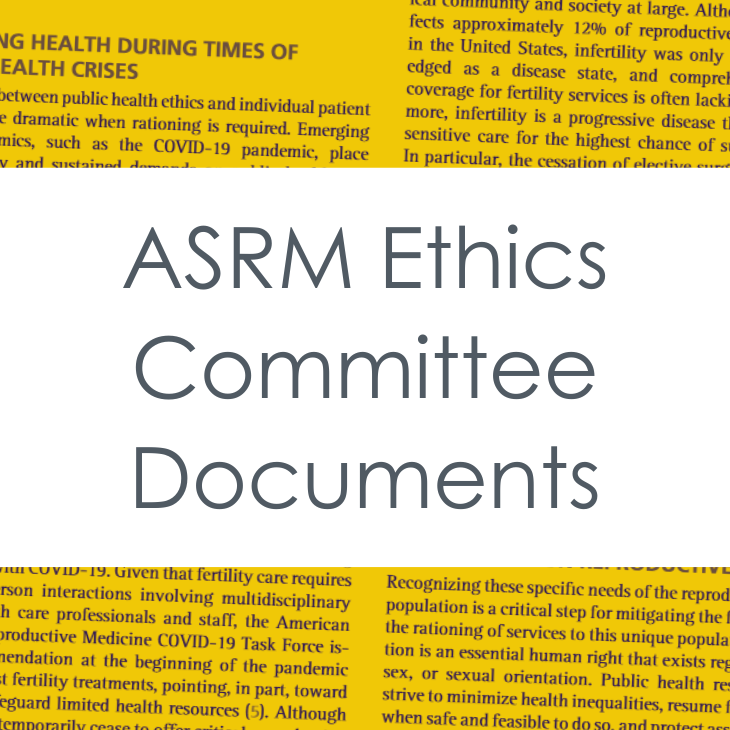
Access to fertility treatment irrespective of marital status, sexual orientation, or gender identity: an Ethics Committee opinion
This statement explores the implications of reproduction by single individuals and unmarried couples and pertains to diverse sexuality and gender (DSG) or cisgender heterosexual persons. The statement concludes that individuals and couples should have access to fertility services irrespective of marital status, sexual orientation, or gender identity. This document replaces the previous version of this document entitled ‘‘Access to fertility treatment by gays, lesbians, and unmarried persons: a committee opinion’’, published in December 2013 (Fertil Steril 2013;100:1524-7). (Fertil Steril® 2021;116:326-30. ©2021 by American Society for Reproductive Medicine.)
Download a PDF of this document
KEY POINTS
- Interest in having and rearing children exists for individuals and couples regardless of marital status, sexual orientation, or gender identity.
- Overall, results of research suggested that the development, adjustment, and well-being of children are not markedly impacted by the marital status, sexual orientation, or gender identity of the parents.
- Programs should treat all requests for assisted reproduction equally without regard to marital status, sexual orientation, or gender identity.
Requests for infertility treatment raise questions about reproductive rights, the welfare of offspring, nondiscrimination, distributive justice, and professional autonomy. Most diverse sexuality and gender (DSG) individuals and couples cannot biologically reproduce on their own. In some cases, moreover, one or both members of a couple may have additional causes of infertility or sub-fertility. The experience of having and raising children is an important value for individuals and may be an integral component of a couple’s relationship. To form families, these individuals and couples must employ fertility treatment, other methods such as adoption, or self-help outside of the health care system. The Committee believes that infertility clinics should treat persons equally regardless of sexual orientation or gender identity (1).
Further, fertility programs often receive requests for treatment from single individuals or unmarried couples. In the 2015 Obergefell v. Hodges civil rights case, the Supreme Court ruled that same-sex couples have the right to marry (2). Cisgender heterosexual and DSG couples who choose to marry may enjoy more legal protections than unmarried couples; however, marital status and the associated legal protections do not impact parenting ability and thus are not relevant for eligibility for fertility services.
The Committee believes that program polices regarding access to care should be consistent across patients irrespective of marital status, sexual orientation, or gender identity.
BACKGROUND: THE CHANGING NATURE OF REPRODUCTION AND THE FAMILY
The concept of a family has changed markedly in recent years with decreasing numbers of children in the United States living in what is characterized as a ‘‘traditional family’’ in which a cisgender heterosexual married couple, both in their first marriage, raise children (3). Currently in the United States, 23% (17.2 million) of children are living with a single mother, and 4% (3 million) of children are living with a single father. Most children are living with both parents. Specifically, 64.7% (47.7 million) of children are living with both parents who are married to one another, and 4% (3 million) of children are living with both parents who are not married to one another. There are also 3.8% (2.8 million) of children who do not live with either parent (4).THE ETHICAL DEBATE
The ethical debate over whether a program should assist single individuals, unmarried couples, and DSG persons to have children depends on the balance among several important values. First, these persons have important interests in choosing whether or not to form families and in being treated in a manner that is just and free of discrimination. A second value is protection of the welfare of offspring. Third, professionals have interests in autonomy in deciding whom to treat and in their own religious liberty.Reproductive Interests
The desires and reasons for wishing to form a family do not differ according to marital status, sexual orientation, or gender identity. Regardless of sexual orientation, gender identity, or marital status, single individuals or couples may wish to have children and raise them, either alone or with a partner. They may wish to have biologically related offspring. They may hope to experience the possibilities of being grandparents or to have offspring who will care for them in their old age. These are core human values and should be respected regardless of marital status, sexual orientation, or gender identity. Given the importance of having children to individuals, there is no sound basis for concluding that marital status, sexual orientation, or gender identity impacts interests in reproduction (5).Single individuals and DSG individuals or couples wishing to have children who are biologically related to them will usually require assistance in reproduction. Unmarried cisgender heterosexual couples may also require fertility assistance. Assisted reproduction procedures may include intrauterine insemination or in vitro fertilization. Reproductive plans may include use of oocytes or sperm from a genetically related donor, use of oocytes or sperm from nongenetically related donors, and may also include enlistment of a gestational carrier to carry the pregnancy. Female couples may also choose to use the oocytes of one partner to create an embryo that may then be transferred to the uterus of the other partner. Because of physiological or other reasons, individuals or couples may also wish to pursue treatment in which the resultant child is not biologically related to the parent or parents (5).
When faced with physiological constraints to reproduction, individuals and couples who seek to have a child may employ nonmedically assisted reproduction methods. These methods may involve both medical and legal risks. Sperm donors who provide gametes in a manner not legally protected under applicable state law, such as in some jurisdictions without the participation of a licensed physician or without a signed agreement, may be judged to be legal fathers of children conceived with their sperm, a result that neither the sperm donor nor the intended parent may desire. The use of donated sperm without medical screening may also involve medical risks of sexually or genetically transmitted disease. When donors are family members or friends, additional concerns may arise about pressures and informed consent (6). It is important for these individuals or couples to have the same access to infertility care as cisgender heterosexual married couples. As the different methods of infertility care involve different risks or expenses, it is important for these individuals or couples to be fully counseled about their available alternatives before choosing how to proceed. Additionally, it is recommended that all parties utilizing third-party reproductive methods be advised to consult with legal experts who can help them understand their rights and responsibilities, which may vary among states.
Welfare of the Offspring
Many persons who oppose reproduction by single, unmarried, or DSG individuals or by unmarried couples do so out of concern for the welfare of the intended offspring. They argue that the best rearing environment for a child is a 2-person, married, cisgender heterosexual family and are reluctant to assist or facilitate any different arrangement. The evidence does not, however, support these concerns.Many of the studies of the welfare of children in nontraditional families largely pre-date the legalization of same-sex marriage. These studies indicated that concerns about the welfare of children raised in these settings were not supported by the evidence. In 2004, a task force of the American Psychological Association reviewed the data existing at that time and found that there was no scientific evidence that parenting effectiveness was related to parental sexual orientation or gender identity. Lesbian and gay parents were as likely as cisgender heterosexual parents to provide supportive and healthy environments for their children (7).
Since the 2004 review, a number of other studies of children raised by same-sex parents were published (8). Although many were small, and fewer reported data regarding children raised by same-sex male partners (5), these studies indicated overwhelmingly that the sexual orientation of the parents did not adversely affect their children. For example, a comparison of Dutch adolescents from planned lesbian parent families and from cisgender heterosexual families found no differences in rates of problem behaviors (9). A study of children raised by lesbian couples or single mothers in Israel similarly found no increase in externalizing problem behavior among the children raised by the couples, although there were increased rates of problem behaviors in children from single-parent households. A recent longitudinal follow-up study of adoptive families with school-age children found no differences in adjustment based on parental sexual orientation (10). A study of adults raised in the United States by lesbian and gay parents reported different experiences growing up but no differences in adjustment in adulthood (11). A study of adopted children placed early in gay and lesbian families found no differences in the children’s adjustment by family type (12), although differences were associated with conflict in the parents’ relationship. Although some investigators have presented data suggesting that children of same-sex parents fare less well than those of opposite-sex parents (13), these data were outweighed by the bulk of research, which has not substantiated this concern.
Overall, studies indicated that concerns about the welfare of the children raised by single parents or unmarried couples were not supported by the evidence. Data reported by the European Society for Human Reproduction and Embryology (ESHRE), although limited, indicated that single women opting for donor insemination were typically psychologically healthy and could rely on supportive networks (5). Other data also suggested that it was the quality of the parenting relationship rather than the marital status of the parents that affected the welfare of the child (14). Other studies of single parents involved confounding factors such as teen parenthood, mental health issues, or lack of stable housing or income (15). A study of single parents by choice did not reveal an increase in psychological problems for children (14).
Regardless of whether an intended parent is single or in a relationship with a same-sex or opposite-sex partner, situations may arise that raise questions about their child-rearing ability and the provision of fertility services. In such cases, clinics may withhold services only on the basis of well-substantiated judgments that the patients will be unable to provide minimally adequate or safe care for offspring (16). This opinion also cautions that decisions about potential parental fitness must be made carefully and based on well-substantiated evidence rather than on grounds that may be discriminatory. In cases in which a program reasonably believes that there are such concerns for the welfare of the future child, it may ethically decline to provide services (16).
Professional Autonomy and the Obligation to Treat Equally
Professional objection to treating single patients and DSG patients may reflect the administrative complications of working with gamete donors or gestational carriers. Alternatively, despite social trends and the data detailed previously, some persons still may view reproduction outside of cisgender heterosexual marriage as morally questionable. These objections may be rooted in religious convictions about the proper structure of marriage and family relationships. The Committee believes, however, that services provided by fertility clinics should be consistent across patients irrespective of marital status, sexual orientation, or gender identity.In some states, antidiscrimination law prohibits fertility programs from denying assisted reproductive technology services to patients on the basis of their sexual orientation. In 2008, the California Supreme Court ruled that refusal to treat a lesbian patient based on the physician's religious views violated state law. The court found that assertions of religious freedom are preempted by state law that prohibits discrimination in public accommodations based on sexual orientation (17). Because medical offices are considered public accommodations under civil rights laws, and approximately a third of all states ban discrimination on the basis of sexual orientation, provider autonomy may not protect physicians who refuse assisted reproductive technology services based on patient demographic characteristics (18). In the wake of the US Supreme Court’s decision in Obergefell v Hodges, a variety of service providers have objected to such state nondiscrimination ordinances as violations of religious liberty. In 2018, the US Supreme Court held that such state laws may not be applied in a manner that demonstrates hostility to religion but that instead must be applied in a manner that is religiously neutral; however, the decision left open any further questions about whether such laws might violate the First Amendment's protection of freedom of speech and the free exercise of religion (19).
Interests of Nondisclosed Spouses
Although it is not the burden of the infertility clinic to verify an individual patient’s marital status, in some cases, providers may become aware that a married individual is misrepresenting themselves as either single or with a partner that is not their spouse. In such cases, the nondisclosed spouse may have important interests in knowing about the possibility of offspring. Most importantly, under the laws of many states, a spouse may be the legal parent of any child conceived during the marriage and obligated to support the child. In such cases, providers should counsel the patient about the importance of notifying the spouse. In this setting, providers may ethically refuse to provide treatment unless they have adequate assurance that the spouse has been informed of the treatment and does not object to it (20). Providers also may wish to seek legal advice in these complex situations.CONCLUSION
As a matter of ethics, this Committee believes that the ethical duty to treat persons with equal respect requires that fertility programs treat single individuals, unmarried couples, and DSG individuals and couples in the same manner as cisgender heterosexual married couples in determining which services to provide. ESHRE has also concluded that the categorical denial of services to these patients cannot be reconciled with a human rights perspective (5). Programs may deny services to single individuals, unmarried persons, and DSG individuals or couples on the same basis that they would deny services to cisgender heterosexual married couples, such as serious and substantiated doubts about whether they will be fit or responsible child-rearers or if the program does not offer anyone a service that is desired or required for their family- building needs, such as gestational carrier or egg donor services.Acknowledgments: This report was developed under the direction of the Ethics Committee of the American Society for Reproductive Medicine as a service to its members and other practicing clinicians. Although this document reflects appropriate management of a problem encountered in the practice of reproductive medicine, it is not intended to be the only approved standard of practice or to dictate an exclusive course of treatment. Other plans of management may be appropriate, taking into account the needs of the individual patient, available resources, and institutional or clinical practice limitations. The Ethics Committee and the Board of Directors of the American Society for Reproductive Medicine have approved this report.
This document was reviewed by ASRM members and their input was considered in the preparation of the final document. The following members of the ASRM Ethics Committee participated in the development of this document: Sigal Klipstein, M.D., Ricardo Azziz, M.D., M.P.H., M.B.A., Katherine Cameron, M.D., Judith Daar, J.D., Joseph B. Davis, D.O., Ruth Farrell, M.D., Elizabeth Ginsburg, M.D., Mandy Katz-Jaffe, Ph.D., Jennifer Kawwass, M.D., Robert Rebar, M.D., Mary Samplaski, M.D., Peter Schlegel, M.D., David Shalowitz, M.D., Chevis N. Shannon, Dr.P.H., M.P.H., M.B.A., Sean Tipton, M.A., Lynn Westphal, M.D., Julianne Zweifel, Ph.D.. All Committee members disclosed commercial and financial relationships with manufacturers or distributors of goods or services used to treat patients. Members of the Committee who were found to have conflcts of interest based on the relationships disclosed did not participate in the discussion or development of this document.
REFERENCES
- Ethics Committee of the American Society for Reproductive Medicine. Access to fertility treatment by gays, lesbians, and unmarried persons: a committee opinion. Fertil Steril 2013;100:1524–7.
- Obergefell v Hodges, 576 US 644 (2015). Available at: https://supreme.justia.com/cases/federal/us/576/14-556/. Accessed March 19, 2021.
- Livingston G. Fewer than half of U.S. kids today live in a ‘traditional’ family. Pew Research Center Web site. Available at: http://www.pewresearch.org/ fact-tank/2014/12/22/less-than-half-of-u-s-kids-today-live-in-a-traditional- family/. Accessed March 19, 2021.
- United States Census Bureau. The majority of children live with two parents, Census Bureau reports. US Census Bureau Web site. Available at: https:// www.census.gov/newsroom/press-releases/2016/cb16-192.html. Accessed March 19, 2021.
- De Wert G, Dondorp W, Shenfield F, Barri P, Devroey P, Diedrich K, et al. ESHRE Task Force on Ethics and Law 23: medically assisted reproduction in singles, lesbian and gay couples, and transsexual people. Hum Reprod 2014;29:1859–65.
- Ethics Committee of the American Society for Reproductive Medicine. Using family members as gamete donors or gestational carriers: an Ethics Committee opinion. Fertil Steril 2017;107:1136–42.
- American Psychological Association. Sexual orientation, parents, and children. Available at: http://lgbtqpn.ca/wp-content/uploads/2015/03/Sexual- Orientation-Parents-and-Children-APA.pdf.
- Columbia Law School. What does the scholarly research say about the well-being of children with gay or lesbian parents? Available at: https:// whatweknow.inequality.cornell.edu/topics/lgbt-equality/what-does-the- scholarly-research-say-about-the-wellbeing-of-children-with-gay-or-les bian-parents/. Accessed March 19, 2021.
- Van Rijn-van Gelderen L, Bos HMW, Gartrell N. Dutch adolescents from lesbian-parent families: how do they compare to peers with heterosexual parents and what is the impact of homophobic stigmatization? J Adolesc 2015;40:65–73.
- Farr R. Does parental sexual orientation matter? A longitudinal follow-up of adoptive families with school-age children. Dev Psychol 2016;53: 253–64.
- Lick DJ, Patterson CJ, Schmidt KM. Recalled social experiences and current psychological adjustment among adults reared by gay and lesbian parents. J GLBT Fam Stud 2013;9:230–53.
- Goldberg A, Smith J. Predictors of psychological adjustment in early placed adopted children with lesbian, gay, and heterosexual parents. J Fam Psychol 2013;27:431–42.
- Regnerus M. How different are the adult children of parents who have same-sex relationships? Findings from the New Family Structures Study. Soc Sci Res 2012;41:750–70.
- Golombok S, Zadeh S, Imrie S, Smith V, Freeman T. Single mothers by choice: mother-child relationships and children’s psychological adjustment. J Fam Psychol 2016;30:409–18.
- McLanahan S, Sandefur G. Growing up with a single parent: what hurts, what helps. Cambridge, MA: Harvard University Press; 1994.
- 1Ethics Committee of the American Society for Reproductive Medicine. Child-rearing ability and the provision of fertility services: an Ethics Committee opinion. Fertil Steril 2017;108:944–7.
- North Coast Women’s Care Medical Group v San Diego Superior Court, 44 Cal. 4th 1145, 189 P.3d 959, 81 Cal. Rptr. 3d 708 (2008). https://scocal. stanford.edu/opinion/north-coast-womens-care-medical-group-v-san- diego-superior-court-33046. Accessed March 19, 2021.
- Daar JF. Accessing reproductive technologies: invisible barriers, indelible harms. Berkeley J Gender Law Justice 2008;23:18–82.
- Masterpiece Cakeshop, Ltd. v Colorado Civil Rights Commission, 576 US 138 S. Ct. 1719 (2018). Available at: https://www.supremecourt.gov/opinions/ 17pdf/16-111_j4el.pdf.
- Ethics Committee of the American Society for Reproductive Medicine. Ethical obligations in fertility treatment when intimate partners withhold information from each other: an Ethics Committee opinion. Fertil Steril 2018; 110:619–24.
Ethics Opinions
Ethics Committee Reports are drafted by the members of the ASRM Ethics Committee on the tough ethical dilemmas of reproductive medicine.

Family members as gamete donors or gestational carriers: an Ethics Committee opinion (2024)
The use of adult intrafamilial gamete donors and gestational surrogates is ethically acceptable when all participants are fully informed and counseled.
Financial ‘‘risk-sharing’’ or refund programs in assisted reproduction: an Ethics Committee opinion (2023)
Financial ‘‘risk-sharing’’ fee structures in programs charge patients a higher initial fee but provide reduced fees for subsequent cycles.
Ethical obligations in fertility treatment when intimate partners withhold information from each other: an Ethics Committee opinion (2024)
Clinicians should encourage disclosure between intimate partners but should maintain confidentiality where there is no harm to the partner and/or offspring.
Ethical considerations for telemedical delivery of fertility care: an Ethics Committee opinion (2024)
Telemedicine has the potential to increase access to and decrease the cost of care.Topic Resources
View more on the topic of access to care
Topic Resources
View more on LGBTQIA+ issues

